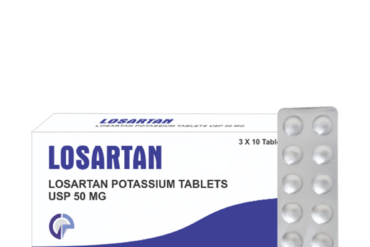OTC vs. Prescription Medications: Whats the Difference?

Table of Contents
- Introduction: Understanding Medication Regulations
- Differences in Availability and Access
- Variations in Active Ingredients
- Safety and Side Effect Concerns
- The Impact on Healthcare Costs
Introduction: Understanding Medication Regulations
When it comes to managing our health, medications play a crucial role. Whether you have a cold, allergies, or a chronic condition, you may have encountered different types of medications such as over-the-counter (OTC) drugs or prescription medications. But what is the difference between these two categories, and why are they regulated differently?
Medication regulations are put in place to ensure the safety and effectiveness of drugs available to consumers. Understanding these regulations can help us make informed decisions about the medications we take and ensure that we use them appropriately.
One key distinction between OTC drugs and prescription medications lies in how they are accessed by consumers. OTC drugs can be purchased directly from a pharmacy, grocery store, or online without a prescription. On the other hand, prescription medications require a written order from a licensed healthcare professional, such as a doctor or a nurse practitioner. This difference in accessibility is closely tied to the level of risk associated with each type of medication.
Prescription medications are typically used for treating complex or serious medical conditions that require the expertise of a healthcare provider. These medications often have potent active ingredients and may carry more significant risks or potential side effects. By requiring a prescription, healthcare professionals can assess the patient’s medical history, current medications, and other factors that may affect the drug’s safety and efficacy. This personalized approach helps ensure that the right medication is prescribed at the appropriate dosage for each patient.
OTC drugs, on the other hand, are generally considered safe and effective for use without the direct supervision of a healthcare professional. These medications are typically used for self-treatable, common health conditions like headaches, allergies, or heartburn. OTC drugs go through a rigorous approval process by regulatory bodies, such as the Food and Drug Administration (FDA) in the United States, to ensure their safety when used as directed. However, they may not be suitable for everyone, and users should carefully read labels and follow recommended dosages.
It’s important to note that the classification of a medication as either OTC or prescription can vary between countries. While some drugs might require a prescription in one country, they could be available over-the-counter in another. These regulations are determined based on factors like the drug’s safety profile, potential for misuse or abuse, and the healthcare system’s overall approach to ensuring patient safety.
- OTC drugs can be purchased without a prescription.
- Prescription medications require a written order from a licensed healthcare professional.
- Prescription medications are typically used for more complex medical conditions under the supervision of a healthcare provider.
- OTC drugs are considered safe and effective for self-treatment of common health conditions.
- Regulations for classifying medications can vary between countries.
By understanding the difference between OTC drugs and prescription medications, we can make informed choices about the medications we use. Whether it’s seeking professional advice for a prescription or carefully selecting an OTC drug, our goal should always be to prioritize our health and well-being.
Differences in Availability and Access
When it comes to availability and access, Over-the-Counter (OTC) medications and Prescription medications have significant distinctions. These differences play a crucial role in determining which type of medication is appropriate for your needs. Here are some key factors to consider:
- Regulation: OTC medications are regulated by government agencies, such as the Food and Drug Administration (FDA). They are considered safe and effective for use without a healthcare professional’s supervision. On the other hand, Prescription medications require a valid prescription from a licensed healthcare provider due to their potential risks and side effects.
- Access: OTC medications are readily available without a prescription from various outlets, including pharmacies, grocery stores, and online platforms. This accessibility allows individuals to self-diagnose and choose a suitable treatment option for minor ailments. In contrast, Prescription medications can only be obtained with a prescription from a healthcare professional, limiting access to specialized treatments for specific conditions.
- Indications: OTC medications typically target common, self-diagnosable conditions, like allergies, headaches, or heartburn. Their packaging provides clear instructions and guidelines for usage. On the other hand, Prescription medications cater to more complex or severe medical conditions that require professional evaluation and monitoring. These medications often have specific dosages and instructions tailored to an individual’s unique needs.
- Side Effects: OTC medications generally have fewer potential side effects than Prescription medications. They typically have a lower dosage of active ingredients, reducing the likelihood of adverse reactions. Prescription medications, however, may have stronger active ingredients and carry a higher risk of side effects. Monitoring and supervision by a healthcare professional help minimize potential harm.
- Insurance Coverage: Insurance coverage varies for OTC and Prescription medications. OTC medications are usually not covered by insurance plans and must be purchased out-of-pocket. In contrast, Prescription medications often have partial or full coverage, making them more affordable for individuals with insurance.
Understanding the differences in availability and access between OTC and Prescription medications is essential for making informed healthcare decisions. While OTC medications provide convenience and quick relief for minor ailments, Prescription medications offer personalized treatment and monitoring for more complex conditions. Consult with a healthcare professional to determine the most suitable option based on your specific medical needs.
Variations in Active Ingredients
One of the key differences between over-the-counter (OTC) medications and prescription drugs lies in the variation of active ingredients they contain. Active ingredients are chemical substances responsible for the therapeutic effects of medications.
1. OTC Medications:
- OTC medications often contain active ingredients in lower concentrations compared to prescription drugs. This is because OTC drugs are intended for self-treatment of common, less severe conditions.
- While there are many OTC medications available for various purposes, some common active ingredients include acetaminophen, ibuprofen, and diphenhydramine.
- These active ingredients are generally deemed safe for self-administration, but it is essential to follow labeled instructions and consult a healthcare professional if symptoms persist or worsen.
2. Prescription Medications:
- Prescription drugs, on the other hand, contain active ingredients in higher concentrations as they are designed to treat more complex or serious medical conditions that require a doctor’s supervision.
- Active ingredients in prescription medications can vary greatly based on the target condition. For example, antibiotics may contain amoxicillin or azithromycin, while antidepressants may contain fluoxetine or sertraline.
- Prescription medications may also incorporate controlled substances, such as opioids, which require careful monitoring and can only be obtained with a doctor’s prescription.
3. Regulation and Approval:
- OTC medications go through a less rigorous approval process compared to prescription drugs. They are evaluated by regulatory bodies for their safety and efficacy but can be sold directly to consumers without a prescription.
- Prescription medications, in contrast, require clinical trials and extensive research to prove their safety, effectiveness, and potential side effects. These drugs can only be obtained with a valid prescription from a healthcare professional.
- It is important to note that some medications may transition from prescription to OTC status after additional studies and subsequent regulatory approval.
Understanding the variations in active ingredients between OTC medications and prescription drugs is crucial for making informed decisions about healthcare. Consulting with a healthcare professional is always recommended to ensure proper usage, potential drug interactions, and personalized treatment options.
Safety and Side Effect Concerns
When it comes to safety and side effects, there are some key differences between over-the-counter (OTC) medications and prescription medications. Understanding these differences can help you make informed choices about which treatments are best for your specific needs.
1. Regulation: One primary distinction between OTC and prescription medications is the level of regulation. Prescription drugs undergo rigorous testing and approval processes by regulatory bodies such as the Food and Drug Administration (FDA). This strict oversight ensures that prescription medications are safe, effective, and appropriate for specific conditions.
On the other hand, OTC medications, while also regulated by the FDA, follow different standards. The FDA evaluates the safety and efficacy of active ingredients in OTC products, but the assessments are generally less stringent than those for prescription drugs. This is because OTC medications are intended for self-diagnosis and self-treatment of common conditions, which don’t require the same level of supervision as prescription drugs.
2. Side Effects: Both OTC and prescription medications can have potential side effects. However, prescription drugs often have a higher likelihood of causing adverse reactions due to their more complex formulations and targeted nature. This is why a prescription is required: a healthcare professional assesses your medical history and prescribes the medication that aims to solve your specific health issue while considering any potential risks.
While OTC medications generally have a lower risk of side effects, they are not entirely without risk. Some common side effects include drowsiness, upset stomach, and allergic reactions. It is important to read and follow the instructions carefully, as well as consult a healthcare provider if you have any concerns or pre-existing medical conditions.
3. Drug Interactions: Another safety consideration is the potential for drug interactions. Prescription medications have a higher likelihood of interacting with other medications, which is why healthcare professionals carefully review your current medications to ensure compatibility. They can adjust doses or recommend alternative treatments to mitigate the risk of harmful drug interactions.
While drug interactions can also occur with OTC medications, they are generally less likely and often involve milder effects. Nonetheless, it is crucial to inform your healthcare provider about ongoing OTC treatments to avoid any potential complications.
4. Misuse and Abuse: Prescription medications carry a higher risk of misuse and abuse due to their potentially potent effects. They are often tightly controlled and dispensed in limited quantities to prevent misuse, addiction, and overdose.
OTC medications, on the other hand, are generally safe when used as directed. However, improper use or exceeding recommended dosages can still lead to adverse effects. It is essential to carefully read labels, follow instructions, and be aware of any contraindications or warnings.
In conclusion, understanding the differences in safety and side effects between OTC and prescription medications is crucial for making informed decisions about your healthcare. Prescription medications offer targeted treatment but have a higher risk of side effects and drug interactions. OTC medications are generally safer but still carry risks if misused. If you have any concerns or questions, it is always best to consult with a healthcare professional.
The Impact on Healthcare Costs
When it comes to managing our health, medications play a crucial role. Whether it’s treating a common cold or managing chronic conditions, we rely on both Over-the-Counter (OTC) and Prescription medications. Understanding the differences between these two types of drugs is not only important for our overall health but also for our wallets.
OTC medications, as the name implies, are readily available for purchase without a prescription. They are usually intended for short-term treatment of common ailments such as headaches, allergies, and indigestion. Due to their accessibility, OTC medications are typically more affordable, making them an attractive option for self-treatment.
Prescription medications, on the other hand, require a written order from a healthcare professional. These drugs are often more potent and are designed to manage specific medical conditions or long-term illnesses. Because of their regulated nature and controlled usage, prescription medications tend to be more expensive compared to their OTC counterparts.
The impact of these different medication types on healthcare costs is multifaceted. Here are a few factors to consider:
- Insurance Reimbursement: Most insurance plans provide coverage for prescription medications, but OTC drugs are typically not covered. This means that individuals are generally responsible for the full cost of OTC medications out of pocket, potentially leading to higher overall expenses.
- Preventive Care: OTC medications often focus on symptom relief and short-term treatment. While they can help address immediate concerns, they may not address the underlying cause of an illness. By contrast, prescription medications may aid in long-term disease management and prevention, potentially leading to reduced healthcare costs in the long run.
- Healthcare Professional Involvement: Obtaining prescription medications involves a consultation with a healthcare professional who can diagnose and prescribe the appropriate treatment. This personalized approach can lead to more accurate and effective treatment plans, minimizing the risk of unnecessary medications and potential complications.
- Counterfeit and Unregulated Products: OTC medications are more susceptible to counterfeit products or unregulated substances that may not be effective or safe. While this poses potential health risks, it can also result in wasted money spent on ineffective treatments.
In conclusion, the difference between OTC and Prescription medications not only lies in their availability, but also in their impact on healthcare costs. OTC drugs, although cheaper upfront, may not provide long-term solutions or comprehensive care. Prescription medications, while generally pricier, often offer tailored treatments and better disease management options. Understanding these differences can help individuals make informed decisions regarding their healthcare needs while considering the financial implications.


























